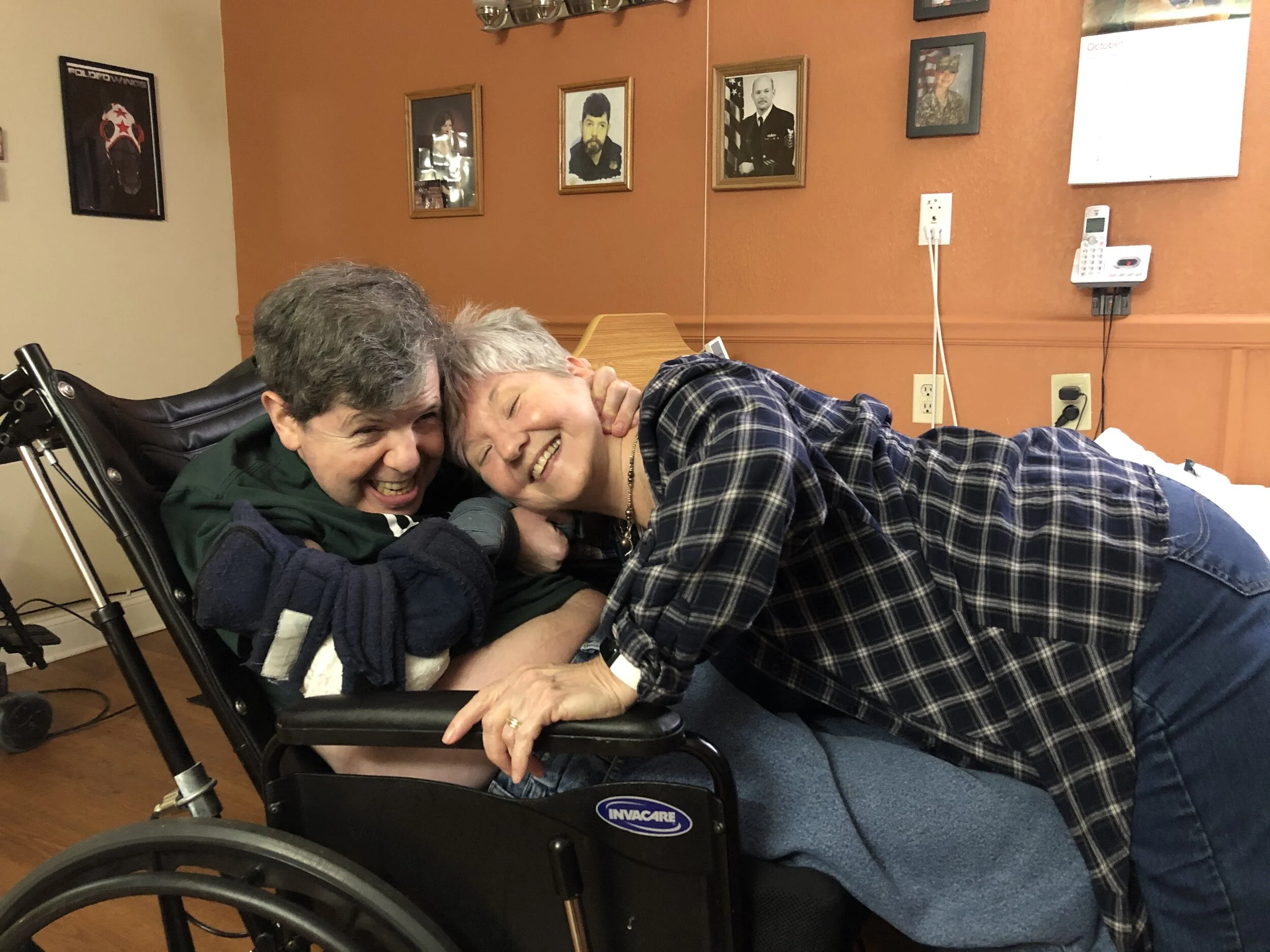BELONGING AFTER BRAIN INJURY
Relocating Dan
ABOUT THE BOOK
Belonging after Brain Injury: Relocating Dan tells the story of my brother Dan, who survived a severe traumatic brain injury (TBI) at the age of 18. The book is part biography, part memoir, and part guide. It shares Dan’s journey, explores the neuropsychological and social effects of TBI, and argues for something essential to all of us: the life-or-death importance of belonging and human connection. While it doesn’t promise easy solutions, it offers context, strategies, and insights that can help survivors, families, and caregivers navigate the ongoing challenges of TBI.
At the heart of Dan’s story is a simple truth: his life still has value. I’ve known people who’ve said—and initially at times even thought myself—that living with impairments as severe as his would not be worth enduring the hardships. But that belief only closes the door to possibility—especially connection. Living differently is still living. Many TBI survivors can find not only challenges, but also contentment, if they have a sense of belonging. Too often, however, they face isolation and loneliness. The book’s central message is this: people with significant impairments can live good lives, but they need connection to others in order to do it. Families, caregivers, professionals, and the public must recognize this if we are to support survivors in finding the belonging we all need.
The book also provides a clear look at TBI itself—its common physical, psychological, and social consequences, as reflected in Dan’s life. Understanding these difficulties doesn’t make them disappear, but it can help loved ones and care providers respond with more empathy and skill. Recognizing that everyone involved—survivors, families, caregivers—is human, with all the flaws and frustrations that entails, is key to building and maintaining relationships that can endure, even if imperfectly.
Dan’s story also sheds light on the institutional and social systems he has had to navigate over more than forty years of life with TBI. If his family, myself included, had better understood some of the lessons I share in this book, many of his hardships might have been eased or avoided. Writing about his life has given me new insights that continue to help me support him even now.
Ultimately, Belonging after Brain Injury: Relocating Dan offers a deeply personal perspective on living with severe disability. It was written for families, medical and mental health providers, and professional caregivers, but it will resonate with anyone interested in understanding the lasting impact of brain injury (and various other disabilities) and the universal human need for connection.
The book is available at Routledge, Amazon, and other booksellers.
(P.S. Please don’t judge my book by its cover. I don’t like it either.)


